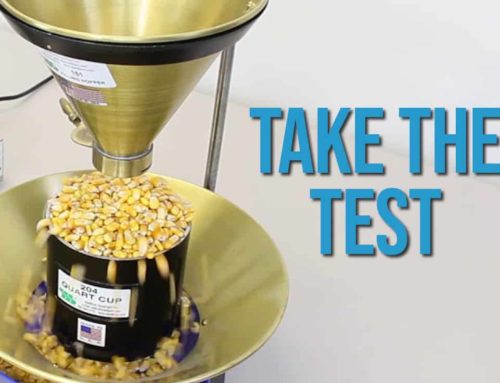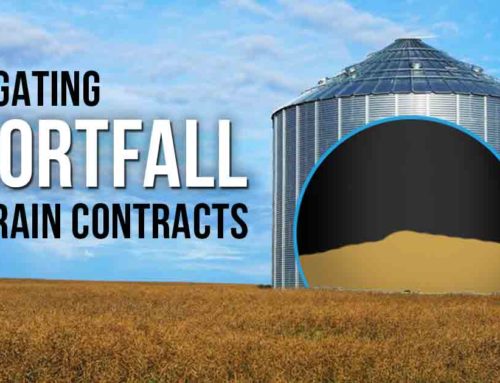Ensuring you have the details
If your grain marketing plan this year includes adding more farmed acres to your operation through rentals, you better make sure any agreement is down on paper. Whether it’s land rent or grain sales…
“A handshake deal isn’t good enough anymore.”
That from MLT Aikins LLP lawyer Eric Dalke, who has reviewed numerous farmland rental deals working in the firm’s agribusiness group.
Legal certainty
He says you need to get your rental agreement down on paper because oral or handshake deals can be very uncertain and cause litigation.
Writing out the deal in a contract gives it some legal certainty.
Dalke says many questions need to be answered in such an agreement, so having it down on paper is imperative to make sure everything is clearly communicated, concise, and organized.
Some of those basic terms in the contract should include:
• How long is this rental or lease?
• Is there a renewal option?
• What is the intent of the parties?
• What is the break-down between cultivated acreage versus non-cultivated acreage on the land?
• What standards are in place for land upkeep?
• What farming practices are allowed on the land?
• Who takes care of the fences?
• How do sub-surface rights, like oil wells, play into the agreement?
What happens if things “go south?”
Not every agreement will go the way you want it to; there will be some that end on a sour note. The question now is, “How do you get out of the deal?”
The easy answer is to be proactive when the land rental agreement is put together so that terms are clear if one party doesn’t live up to their end of the bargain.
“You want to make sure that those default provisions are well delineated, and then you want to have the option for exit, particularly in the event of default.”
Land Upkeep
There should be some language in the contract talking about upkeep of the land and soil being rented.
Dalke says landlords want to make sure the tenant is keeping the land up to a reasonable farming standard, including using the land in a “proper husband-like manner”, and the tenant needs to know what that standard is to avoid future issues.
Say a renter has a grand plan to grow canola two years in a row. Instead of doing a proper rotation and then move on to other land, leaving the landlord and the next renter potentially with a clubroot problem and other disease issues.
While the above example is an extreme case, Dalke says it’s not unheard of for landlords to put specific soil stewardship – crop production details into a contract, including the seed being used or fertilizer inputs.
However, he hasn’t seen many clauses that specific, but there should be a line or two ensuring the land is taken care of.
“Farmers understand and landlords understand that the business of farming requires some flexibility in terms of what you choose every year to put on the land and what sort of crops you’re going to put in the ground and ultimately harvest.”
Fencing
Keeping the fencing on the property, if it has any, in tip-top shape needs to be addressed in any land rental agreement.
Dalke says there are two questions that need to be answered:
• Who is responsible for the upkeep work?
• Who is paying for the fencing supplies and labour, if necessary, to keep it in good shape?
Oil wells
It’s common in Alberta and parts of Saskatchewan to see oil wells and pumping jacks on farmland. It’s important to keep this in mind when you are building your rental agreement because the ones in place, and any that might be built during the rental period, are going to affect cultivated acres.
Dalke says any agreement needs to clearly state who is getting the revenue from those wells.
“Typically, annual surface lease rentals will go to the landlord and crop damages to the farmer, but there can be clauses which divide rentals as between landlord and tenant, and you really have some flexibility around that.”
Dalke says if the tenant shows up thinking they are getting a full 140 acres of cultivated land and there are five wells or a large pad, it can cause a lot of tension.
“There can be significant loss of use, adverse effect and possible damages in respect of the farmable area and growing crops, and so you want to deal with that in terms of the landlord and tenant relationship.”
Again, he emphasizes this needs to be spelled out in the agreement. A good agreement on paper fosters a good business relationship
Conclusion
Dalke says if there is one thing farmers should take away from this article, it is to put your land agreement down on paper to ensure the renter and landlord’s intentions are clear.” intentions of the renter and landlord are clear.
He says producers should also have legal counsel look at their agreements.
“It can give you that certainty in terms of the business relationship on a go forward. And that can encourage good stewardship as between the landlord and specifically the activities of the tenant on the property.”




